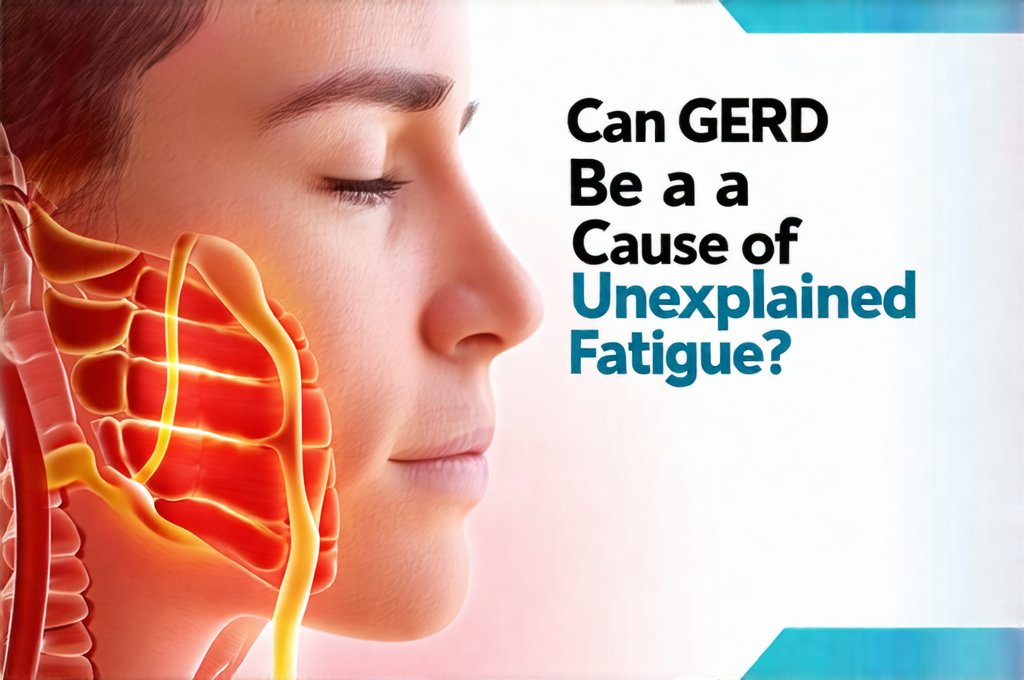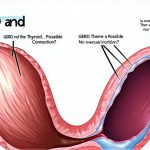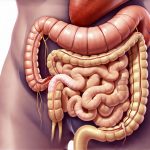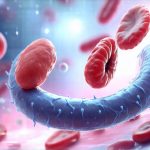Fatigue is one of the most common complaints doctors hear, yet pinpointing its cause can be remarkably challenging. Often described as overwhelming tiredness that doesn’t improve with rest, fatigue isn’t simply feeling sleepy; it’s a pervasive lack of energy that interferes with daily life. Many factors contribute to chronic fatigue – from psychological stress and poor sleep habits to underlying medical conditions like anemia or thyroid disorders. However, one often-overlooked contributor is gastroesophageal reflux disease (GERD), the condition where stomach acid frequently flows back into the esophagus. While typically associated with heartburn and indigestion, GERD can have far-reaching effects on overall health, including contributing significantly to unexplained fatigue in some individuals.
The connection between GERD and fatigue isn’t always obvious, which is why it’s often missed. It’s not necessarily about a direct drain of energy from the reflux itself, but rather the cumulative impact of disrupted sleep, nutrient malabsorption (in severe or long-standing cases), chronic inflammation, and the stress response triggered by ongoing discomfort. When stomach acid irritates the esophagus, it can lead to nighttime symptoms that repeatedly wake individuals, fragmenting their sleep architecture and preventing restorative rest. This persistent sleep disruption creates a vicious cycle where fatigue worsens GERD symptoms, further impacting sleep, and ultimately diminishing quality of life. Understanding this interplay is crucial for accurate diagnosis and effective management. Perhaps understanding how can reactions relate to healing can help with overall health.
The GERD-Fatigue Connection: Unpacking the Mechanisms
The link between GERD and fatigue isn’t always straightforward, but research increasingly points to several key mechanisms at play. It’s rarely a case of direct energy depletion from reflux itself; instead, it stems from secondary consequences that create a cascade of effects leading to exhaustion. One primary contributor is sleep disturbance, as mentioned earlier. Repeated nighttime awakenings due to heartburn or acid regurgitation prevent the body from entering deep, restorative stages of sleep essential for physical and mental recovery. Chronic sleep deprivation profoundly impacts energy levels, cognitive function, and immune system health – all contributing to feelings of fatigue.
Beyond sleep, GERD can also impact nutrient absorption, particularly if it’s long-standing or severe enough to cause esophageal inflammation and damage. While not common, chronic esophagitis can interfere with the body’s ability to effectively absorb vital vitamins and minerals from food. Deficiencies in nutrients like iron, vitamin B12, and vitamin D are well-known causes of fatigue, and GERD could potentially exacerbate these deficiencies over time. Furthermore, the ongoing inflammation associated with GERD – a constant state of irritation within the esophagus – is thought to contribute to systemic inflammatory responses that drain energy reserves. Chronic inflammation is linked to numerous health problems and is increasingly recognized as a significant factor in chronic fatigue syndromes. It’s important to consider if emotional stress plays a role here, too.
Finally, it’s important to consider the psychological toll of living with chronic discomfort. Dealing with persistent heartburn, acid reflux, or indigestion can create considerable stress and anxiety. The body’s stress response – involving the release of cortisol and other hormones – while necessary for short-term coping, depletes energy reserves when chronically activated. This leads to a state of adrenal fatigue (though this term is debated medically) and further exacerbates feelings of tiredness and exhaustion. Essentially, GERD can create a complex web of interconnected factors that contribute to unexplained fatigue, making it crucial to address the underlying condition rather than solely focusing on symptom management. If you’ve been dieting in the past, consider if gut issues are a factor.
Identifying GERD as a Potential Cause
Diagnosing GERD as a contributing factor to fatigue requires careful evaluation by a healthcare professional. It’s not always about dramatic heartburn; many individuals experience “silent reflux” – where symptoms are atypical or absent, but acid is still flowing back into the esophagus. This can manifest as a chronic cough, sore throat, hoarseness, or even just a feeling of something stuck in the throat (globus sensation) alongside fatigue. – A detailed medical history will be taken, focusing on your specific symptoms, their timing, and any potential triggers.
– Lifestyle factors like diet, eating habits, sleep patterns, and stress levels will also be assessed.
Several diagnostic tests can help confirm a GERD diagnosis. Endoscopy involves inserting a thin, flexible tube with a camera into the esophagus to visualize the lining and check for inflammation or damage. Ambulatory reflux monitoring (ARM) – either pH monitoring or impedance testing – measures the amount of acid exposure in the esophagus over a 24-hour period. This can help determine if symptoms are actually related to acid reflux, even if heartburn isn’t prominent. It’s vital to remember that fatigue is a symptom, not a diagnosis; identifying GERD as a cause doesn’t necessarily mean it’s the only cause. Other potential contributors should be investigated concurrently. In some cases, gut symptoms can mimic other conditions.
Lifestyle and Dietary Modifications for Relief
If GERD is identified as contributing to your fatigue, implementing lifestyle and dietary changes can significantly improve symptoms and boost energy levels. These modifications are often the first line of defense against GERD and can reduce or eliminate the need for medication in many cases. – Dietary adjustments: Avoid trigger foods like caffeine, alcohol, chocolate, fatty foods, spicy foods, citrus fruits, and tomatoes. Eating smaller, more frequent meals instead of large ones can also help.
– Lifestyle changes: Elevate the head of your bed by 6-8 inches to prevent acid from flowing back into the esophagus during sleep. Avoid lying down for at least 3 hours after eating. Maintain a healthy weight, as excess weight puts pressure on the abdomen and increases risk of reflux.
Quitting smoking is also essential, as nicotine weakens the lower esophageal sphincter (LES), allowing stomach acid to escape more easily. Managing stress through techniques like yoga, meditation, or deep breathing exercises can further reduce GERD symptoms and improve overall well-being. It’s important to note that dietary changes require patience and consistency. Identifying your individual trigger foods may take time, but the benefits for both GERD and fatigue are often substantial. These modifications aren’t a quick fix, but a long-term commitment to managing your condition and restoring energy levels. Some individuals find travel constipation exacerbates GERD symptoms, too.
Medical Interventions When Lifestyle Changes Aren’t Enough
While lifestyle and dietary changes are the cornerstone of GERD management, medical interventions may be necessary if symptoms persist despite these efforts. Several medications can help reduce acid production or protect the esophageal lining. – Antacids provide quick, temporary relief by neutralizing stomach acid.
– H2 receptor antagonists (H2RAs) decrease acid production for a longer period.
– Proton pump inhibitors (PPIs) are the most potent acid-suppressing medications and are often prescribed for more severe GERD or erosive esophagitis.
It’s crucial to use PPIs under medical supervision, as long-term use can have potential side effects. In rare cases where medication isn’t sufficient, surgical options like fundoplication – which strengthens the LES – may be considered. However, surgery is generally reserved for severe cases that haven’t responded to other treatments. It’s important to remember that managing GERD effectively requires a collaborative approach between you and your healthcare provider. Regular follow-up appointments are essential to monitor symptoms, adjust treatment as needed, and ensure the best possible outcome. Addressing GERD isn’t just about eliminating heartburn; it’s about restoring quality of life and reclaiming your energy. Consider if low iron levels are impacting your fatigue as well.


















